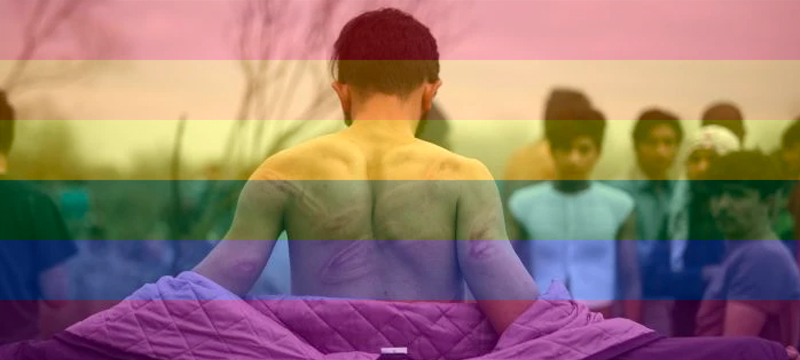LGBTQ Asylum awareness this Pride Season
This Pride Month, we want to share with you why Pride is important to us as an organisation and how we protect members of the LGBTQ community.
The UK is a place of refuge for the LGBT community seeking asylum from their home country. Where not conforming to feminine and masculine binary norms, is a punishable offence. According to the ILGA, there are 72 countries that have laws that criminalise homosexuality. In 11 of these countries, the punishment is death.

One of the most recent cases was the case of Alireza Fazeli Monfared.
Alireza was a 20-year-old Iranian man, who was beheaded in an ‘honour killing’ by members of his own family after they learned that he was gay. Devastatingly, this is not just one case, this is a common occurrence in 37% of the world. These killings are mostly undocumented, so no one really knows how often this occurs.
In the majority of these areas, a person who has committed an ‘honour killing’ is exempt from punishment. Aside from ‘honour killings’, other persecutions members of the LGBT community face in these countries, include (but are not limited to):
- Physical and verbal abuse
- A prison sentence
- A variable fine
- Lashings or whippings which can result in death
- A death sentence, carried out in many ways, such as the ‘honour killings’ or lashings or stonings.
Most members of the LGBTQ+ community live in fear where these punishments are practised. Many of them attempt to seek refuge in ‘safe’ countries: Germany, Copenhagen Denmark, Sweden, New Zealand, Australia, Turkey, Canada, and the UK. However, their story to a happily ever after doesn’t begin here.
Angel’s Story
Angel fled Zimbabwe in fear of her life after Zimbabwean police found her in bed with another woman six years ago. Since then it’s taken most of the time to convince the Home Office that she is gay and will be victimized if she returns to her home country.
In 2015, Angel found herself in an interview room in the north of England with a Home Office official, who interrogated Angel on her story.
For seven hours, the interviewer picked at the threads of her life story. Angel tried to explain to the interviewer that she had known from an early age that she liked girls, but had tried to suppress the feeling. She told the interviewer about a secret relationship with a girl at high school and the betrayal of a family member she confided in, how she was forced into an arranged marriage with an abusive husband in her 20’s, and where she was raped by two men in her 30s who intended to “straighten her up”. She then went on to her most recent abuse, where a few years later Angel met Kim at a party.
The two women, both in their 30s, instantly hit it off. They danced and got tipsy. Such a rare encounter made Angel feel happy and heady, where her inhibitions began to slip away from her. Eventually, they went to one of the bedrooms together.
In the early hours, there was a fight downstairs and the police were called. Angel still doesn’t know the details of what happened, but once they arrived the police went room to room and found Angel and Kim in bed together. The first police officer to arrive yanked back the bedsheets and prevented the two women from getting dressed. They called for others down the hall to come and have a look. As Angel and Kim struggled to get dressed, the police kicked the women with their heavy boots and beat them with their batons. Kim managed to run off, Angel still does not know where she is. Angel ran home and threw some things into a rucksack. Terrified that the police could be right behind her she didn’t stop to say goodbye to her sleeping daughter and mother.
Angel knocked on the door of a local pastor and family friend, asking for refuge just for the night. But he did not want to help her. Instead, a minibus took her across the border to South Africa but with xenophobic attacks against migrants on the rise, she was advised to leave. Angel put herself in the hands of an underground network of people getting asylum-seekers to safe countries. A charity covered the cost of false documents and arranged her passage to the UK via a flight to France and eventually a lorry from Calais to Dover. Hiding in the back of the lorry, Angel felt terrified and her resolve began to falter. She knew nobody in the UK and nothing about the place.
Angel was later asked about her relationship with women. She’d had very few in Zimbabwe, but there it had been impossible to be openly gay. But since arriving in the UK there had been nothing to stop her. She explained that she was still scared to open up to people and that she still carried the stigma of being a lesbian heavy in her heart.
But when Angel’s Home Office interview was over she began to doubt this. She trudged back to the train station and cried in a toilet cubicle.
Three months later she found out she had been refused asylum.
After losing her house, Angel spent the next 18 months relying on people from her church for a place to sleep at night. Often she would look after their children or do domestic work in exchange.
There were moments when Angel wondered whether she was right to escape from Zimbabwe. At her lowest, she contemplated suicide. But witnessing her first Manchester Pride festival in 2018 helped restore her morale. Seeing Manchester bathed in rainbows and celebrating people like her made Angel fall in love with the city.
With charity support, Angel revived her asylum claim, slowly gathering as much evidence as she could to prove that Zimbabwe wasn’t a safe place for her to return to.
After much painstaking work and an agonising wait, she was eventually granted asylum in autumn 2019. Receiving the news from her solicitor on the phone felt surreal and it was only when her official residency permit arrived a month later that reality began to sink in.
Angel is now working hard to improve her English while helping other lesbian asylum seekers. Her greatest ambition is to bring her daughter over to the UK so they can be together again.
Our team of Immigration lawyers represent LGBTQ asylum clients like Angel, where we aim to get them refugee status and protect them from removal to their country of origin. To do this, we explore their individual circumstances and ensure that their statement in support of their asylum claim reflects the full extent of their experience in their home country, the horrors that they have faced, why they should reside in the UK and what would happen if they were sent back. In addition, we seek evidence and present this on their behalf of our clients to the UK authorities to support their asylum application.
In June, Pride month is a time for us to reflect on the progress we’ve made towards LGBTQ+ equality and to acknowledge the fact that we stand on the shoulders of those who have fought so hard over the years to achieve this. But, our stories should tell us that we still have so much more to do. We are pleased that Pride season brings hope and light to LGBTQ people around the world, much like it did to Angel, however, organisations should further their commitment not only where it is acceptable to, but to where it’s not.
At Leonard Solicitors, we are passionate about helping LGBTQ people in the UK and abroad who are in danger of being themselves and for who they cannot help but love. Our commitment to helping the LGBTQ+ community from abroad has allowed hundreds to achieve refugee status, allowing them to live freely and safely in the UK without being persecuted.
Written by Gemma-Louise Chopra – Digital Marketing Assistant
Disclaimer: Information on this webpage is not intended for legal purposes or advice. If you require legal advice or services you should seek a professional legal practitioner.
Get to know us!
We send weekly updates containing news articles and blogs on the latest trends happening in the UK and abroad. If you want to get to know us better, sign up below.
When you sign up for our newsletter and occasional tailored communications you agree to our Privacy Policy.




